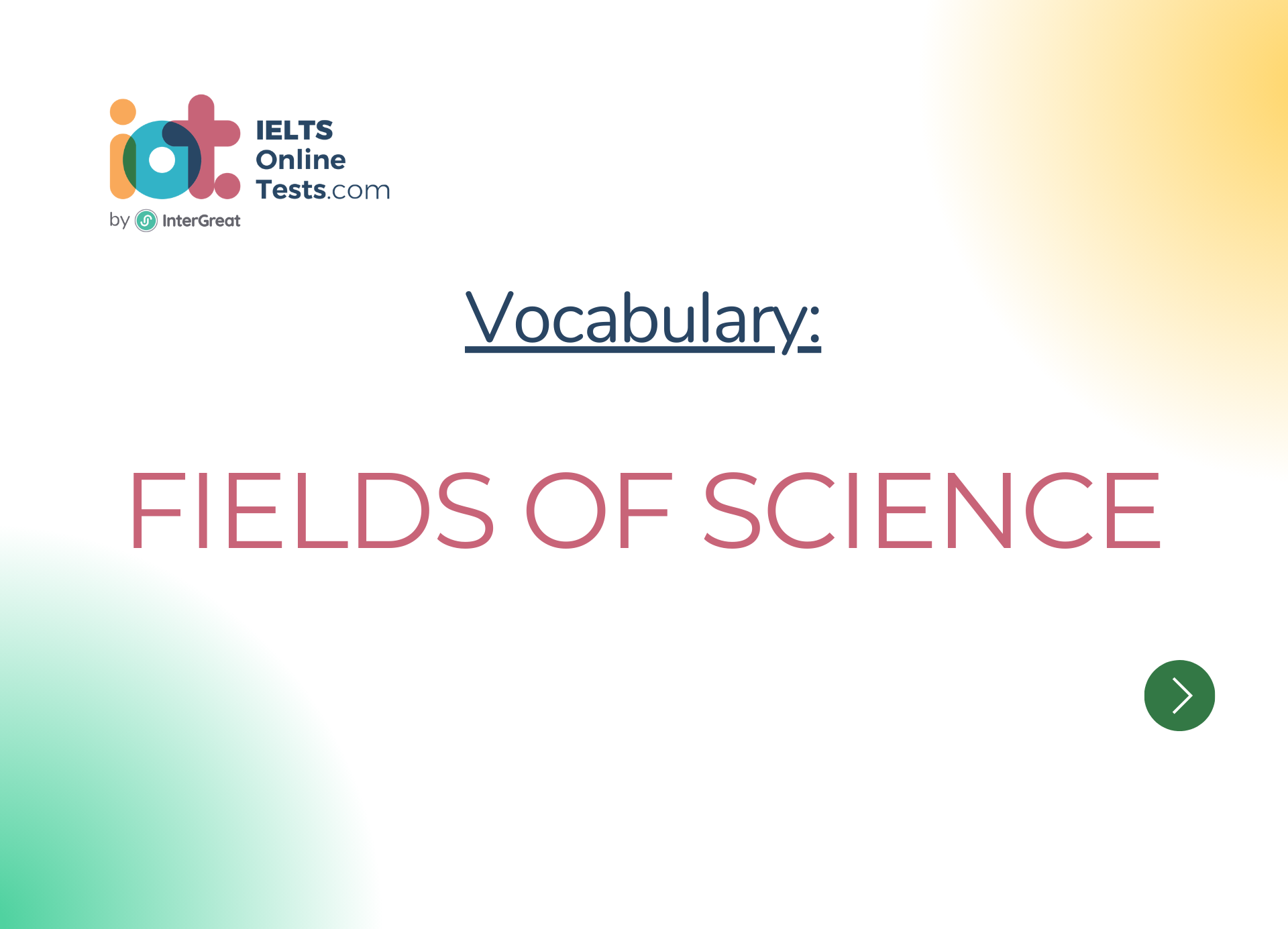
Fields of science
Below are some vocabulary words related to various fields of science for the IELTS band score range of 4.5-6.0:
Biology
The study of living organisms and their interactions with the environment.
Chemistry
The branch of science that deals with the composition, structure, and properties of matter.
Physics
The study of matter, energy, and the fundamental forces of nature.
Geology
The study of the Earth's structure, processes, and history.
Astronomy
The study of celestial objects, space, and the universe.
Psychology
The scientific study of behavior and mental processes of humans and animals.
Sociology
The study of human society, social interactions, and social institutions.
Anthropology
The study of human societies, cultures, and their development.
Archeology
The study of past human societies and cultures through artifacts and remains.
Ecology
The study of the relationships between organisms and their environment.
Environmental Science
The study of the environment and its impact on living organisms.
Meteorology
The study of the Earth's atmosphere and weather patterns.
Botany
The study of plants and their biology.
Zoology
The study of animals and their biology.
Microbiology
The study of microscopic organisms, such as bacteria and viruses.
Genetics
The study of genes and heredity.
Neuroscience
The study of the nervous system and the brain.
Biotechnology
The use of biological processes for practical applications.
Nanotechnology
The study and manipulation of matter at the nanoscale.
Computer Science
The study of computers, algorithms, and information processing.
Mathematics
The study of numbers, quantity, and patterns.
Statistics
The collection, analysis, interpretation, and presentation of data.
Economics
The study of the production, distribution, and consumption of goods and services.
Political Science
The study of political systems, governments, and political behavior.
Linguistics
The scientific study of language and its structure.
Philosophy
The study of fundamental questions about existence, knowledge, values, reason, mind, and language.
History
The study of past events and their significance.
Medicine
The science and practice of diagnosing, treating, and preventing diseases.
Biochemistry
The study of chemical processes within and relating to living organisms.
Geography
The study of the Earth's landscapes, environments, and spatial relationships.
Marine Biology
The study of marine organisms and their ecosystems.
Entomology
The study of insects and their biology.
Paleontology
The study of prehistoric life through fossils.
Astrophysics
The branch of physics that deals with the study of the universe and celestial objects.
Climatology
The study of long-term weather patterns and climates.
Oceanography
The study of the oceans, including their physical and biological aspects.
Seismology
The study of earthquakes and seismic waves.
Immunology
The study of the immune system and its response to pathogens.
Genomics
The study of an organism's entire genome.
Environmental Chemistry
The study of chemical processes in the environment.
Sociolinguistics
The study of the relationship between language and society.
Cognitive Psychology
The study of mental processes, including perception, memory, and problem-solving.
Developmental Psychology
The study of human development across the lifespan.
Cultural Anthropology
The study of human cultures and societies from a comparative and ethnographic perspective.
Forensic Science
The application of scientific methods to solve legal problems and investigate crimes.
Neuropsychology
The study of the relationship between the brain and behavior.
Astrobiology
The study of the origin, evolution, and possibility of life beyond Earth.
Biomedical Engineering
The application of engineering principles to medicine and biology.
Behavioral Economics
The study of how psychological factors influence economic decisions.
Political Economy
The study of the relationship between politics and economics.
Remember to familiarize yourself with these terms and practice using them in different contexts to enhance your understanding and fluency. Utilizing a diverse range of vocabulary will undoubtedly improve your performance in the IELTS exam and academic endeavors. Good luck!




